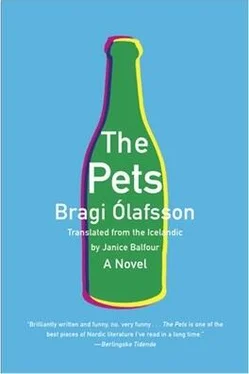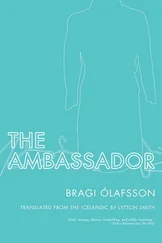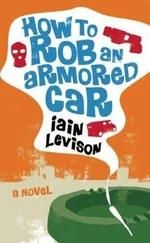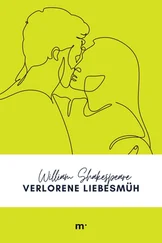Bragi Ólafsson - Pets
Здесь есть возможность читать онлайн «Bragi Ólafsson - Pets» весь текст электронной книги совершенно бесплатно (целиком полную версию без сокращений). В некоторых случаях можно слушать аудио, скачать через торрент в формате fb2 и присутствует краткое содержание. Год выпуска: 2008, Издательство: Open Letter, Жанр: Современная проза, на английском языке. Описание произведения, (предисловие) а так же отзывы посетителей доступны на портале библиотеки ЛибКат.
- Название:Pets
- Автор:
- Издательство:Open Letter
- Жанр:
- Год:2008
- ISBN:нет данных
- Рейтинг книги:5 / 5. Голосов: 1
-
Избранное:Добавить в избранное
- Отзывы:
-
Ваша оценка:
- 100
- 1
- 2
- 3
- 4
- 5
Pets: краткое содержание, описание и аннотация
Предлагаем к чтению аннотацию, описание, краткое содержание или предисловие (зависит от того, что написал сам автор книги «Pets»). Если вы не нашли необходимую информацию о книге — напишите в комментариях, мы постараемся отыскать её.
Pets — читать онлайн бесплатно полную книгу (весь текст) целиком
Ниже представлен текст книги, разбитый по страницам. Система сохранения места последней прочитанной страницы, позволяет с удобством читать онлайн бесплатно книгу «Pets», без необходимости каждый раз заново искать на чём Вы остановились. Поставьте закладку, и сможете в любой момент перейти на страницу, на которой закончили чтение.
Интервал:
Закладка:
“Are you there, Emil?” he says, as if he knows quite well that I am hiding in here and am only waiting for the right moment to come out and surprise him.
I lift the dark blue sheet up one or two centimeters, and my heart nearly stops when I see Havard pause in the space between the bathroom and the bedroom. I can’t see if he is looking in here, but I hear him whistle something and imagine that he is trying to decide in which direction he should go. Then he grows silent, goes into the toilet, and stops in front of the sink, no doubt to look at himself in the mirror.
“He can’t have gone far,” Havard says to his reflection. “The millionaire Emil S. Halldorsson.”
How on earth does he know about the lottery prize? Who has he been talking to? Who told him about it? It has to be the reason for this visit. Unless it is entirely a coincidence that he calls me a millionaire, which is most unlikely.
“What’s that?” he says, surprised, and the next moment I hear him screwing the lid off something, probably my aftershave, and slap his hand on his cheeks or neck. “Après-rasage,” he says with a hard French accent, and then in English, before he bangs the bottle down on the table beside the sink.
I was right about his shoes. He is wearing the same kind of shoes he wore five years ago: black patent leather shoes with pointed toes that have clearly covered a lot of ground; perhaps these are the shoes he bought in London just after we arrived there together. On the other hand, his pants — dark grey Terylene pants that droop down a little over his shoes when he opens his fly in front of the toilet bowl — seem to be comparatively new. I haven’t seen him in this kind of pant before.
He starts whistling again as he urinates. I turn my head and push it down into the carpet with as much strength as I can muster.
The air under the bed is terrible. When I bought the flat I got someone to rub down the rough surface on the walls, and the resulting dust collected in the carpet, where I suspect most of it still is. It feels as if my head is getting stuffed full with dust, which isn’t exactly what I need in these circumstances.
By lifting the sheet slightly higher I see that Havard is still wearing his anorak. It seems to be torn above the lower right-hand pocket, which might have happened when he climbed in through the kitchen window. When he pulls the anorak back — probably to prevent it from getting in the way of the stream of urine — I can see he is wearing a suit and a light grey shirt, which I must admit goes very well with the suit. My first thought is that he has been shopping in Reykjavik on credit and expects me — who, in his mind, is quite well off at the moment — to help him pay the bills. He stops whistling for a moment, farts, and sighs happily, and when he starts whistling again I think I recognize “Habanera” from Carmen .
It is obvious that he has consumed quite a lot of liquid. He zips up his fly and, without washing his hands, rushes out of the door by grabbing on to the lintel and pulling himself out into the hall. I don’t remember these abrupt movements of his. He seems to be in a hurry and I begin to hope, feebly, that he will leave soon, perhaps snatch something to take with him and then disappear before I return from the shop or from wherever he has imagined that I have gone. But these hopes are short-lived; he stops suddenly in the hall and comes back into the bedroom — my guess is that something caught his eye as he was coming out of the bathroom. He walks straight up to the computer, which is in the corner by the headboard of the bed, just beside my legs.
He sits down at the table; the old wooden chair creaks and his nylon anorak crinkles. I lie dead still and don’t dare to lift the sheet. Havard presses one key on the keyboard and then seems to stand up from the chair. He takes off his anorak, throws it on the bed, and sits down again.
“‘Dear Vigdis,’” he reads out loud, and continues in a lower voice: “‘Here I am back from London at last. How are you? Is the hotel busy? You told me the other day that you would be attending some meeting today so I shall just write to you. It was a good trip. I visited Jonas, though he was busy studying for his exams. Then I went to some concerts at Vortex and Pizza Express. .’ Concerts at Pizza Express! That’s the damn jazz place he was always trying to drag me along to! You are such a pussy, Emil!”
Of course, that’s not quite true; I remember once trying to get him to come with me to a jazz concert in London, but that was at Pizza on the Park, not Pizza Express. He carries on reading:
“‘As you can imagine I bought some music and a few books et cetera. .’” At this point Havard stops reading the unfinished letter and asks himself who this Vigdis can be. Then he carries on reading quietly, snorts at something I have written and stops reading when he gets to the words “to settle my accounts.” He repeats the words out loud with a question mark at the end. “What on earth does the man mean: ‘To settle my accounts?’” adding, in a husky voice as if it came from the throat of some grumpy old man: “Emil and Vigdis. Who are you fucking these days, Emil?” Next he pretends to be a small child trying to read from a primer: “Emil likes fucking Vigdis. Vigdis always says yes when Emil wants to go to bed. She wants Emil to be happy and Emil is always happy because Vigdis is so good to Emil. But now little Emil is sad because he went away and there was no Vigdis there. Emil misses Vigdis very much. He has written her a letter.”
How is it possible that I know this man? There is nothing in my life or character that leads to the conclusion that Havard and I should meet. My reaction to this soliloquy is to imagine that the directors of the institution in Sweden where he was kept saw no other solution than to get rid of him, even though he still had to serve two thirds of his confinement. I can quite understand their decision. However, it is unforgivable — if that is the case, which I don’t really believe it is — that the directors did not inform me and others who know Havard, in good time, so that we could take some precautions before he arrived in Iceland.
Now he has suddenly lost interest in the letter to Vigdis. He stands up and leaves the room. I don’t hear him take his anorak with him. And when I am sure that he has gone out, I stick my left hand out from under the bed and feel around until I touch the nylon. I let go of it straight away to avoid dragging it down on to the floor.
I hope that he will get going now, but then realize that he is obviously going to wait for me; he has come a long way, he clearly knows about the money I have won, and he is going to make me suffer for not taking him up on his offer in the kitchen at Brooke Road. He knew quite well at the time that I had those four hundred pounds — or rather eight hundred — and from his point of view I could have easily managed without them.
He has started on the whisky. I can hear him unscrew the lid and fetch a glass from the cupboard. He obviously takes his time choosing the right glass and starts whistling “Habanera” again. The glass rings. I guess that he selects one of my blue Iittala glasses. Then he pours so much into it that I have to accept the fact that he is not leaving any time soon. That uncomfortable fact is made more blatant when he opens a beer can — if it isn’t out of his plastic bag then it is the fourth from my pack — and walks into the living room.
I hear him going through the CDs on the table and after a few minutes the first tones of “Mysterious Traveller” by Weather Report can be heard. Though I am far from being in the mood for jokes, I find it really amusing that he should pick this track — it is so very appropriate.
Читать дальшеИнтервал:
Закладка:
Похожие книги на «Pets»
Представляем Вашему вниманию похожие книги на «Pets» списком для выбора. Мы отобрали схожую по названию и смыслу литературу в надежде предоставить читателям больше вариантов отыскать новые, интересные, ещё непрочитанные произведения.
Обсуждение, отзывы о книге «Pets» и просто собственные мнения читателей. Оставьте ваши комментарии, напишите, что Вы думаете о произведении, его смысле или главных героях. Укажите что конкретно понравилось, а что нет, и почему Вы так считаете.
